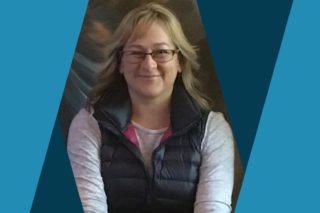Asking for Feedback After an Interview: Wendy Polulech’s Job Search Story

Share
Many job seekers go through the same cycle: they apply for a job, get an interview but then don’t make the cut and are not hired for the position. Wendy Polulech experienced this same cycle during her job search, but instead of getting discouraged, she reached out to the hiring manager who interviewed her to get honest feedback on why she was not hired for the position. This open communication and constructive criticism helped bolster Wendy’s confidence and find a job she loves with Oregon Health Authority.
What do you do for a career? Who do you work for?
I work for the Oregon Health Authority Public Health Division as a Worksite Wellness Policy Specialist.
How long did it take you to find this job?
It took me a solid 8 months to get this position. That includes a 6 week period where I was offered a job and then the offer was rescinded after the agency had some unexpected upheaval.
How did you find your job? What resources did you use? What tool or tactic helped the most?
I found this job on the Oregon State HR website. In the end, I ended up applying for my current position position at the urging of a woman who had interviewed me for another position I wasn’t ultimately hired for. I asked her for feedback about my interview to gain insight into why I didn’t get that job and she was kind enough to talk with me over the phone. It bolstered my confidence. I am not sure I would have applied for this job if not for her encouragement.
Sometimes when you are reading these job descriptions you can convince yourself you aren’t qualified, though, as I dove into the process, I realized I actually was very qualified. Keep in mind – especially with big organizations or government jobs – the job descriptions are wide and meant to cover every possible scenario. You will most likely not be doing everything that is in the job description.
Meeting with several people in the Public Health field for informational interviews helped me the most. Learning how each organization fit together with others was instrumental in filtering out organizations that weren’t a good fit for me.
What was the most difficult part of your job search? How did you overcome this challenge?
I was surprised at how long it took. And it was difficult to keep applying for jobs but never hearing anything back! I’m not sure how I overcame that….I just kept plugging away.
Really finding quiet time to figure out your transferable skills and apply them to different roles is a great way to see yourself as more than what your last position was.
What is the single best piece of advice you would offer other job-seekers?
Spend the time to do informational interviews. I was amazed at how willing people were to talk to me! It was difficult to identify the people to interview because I relocated here and did not have any contacts to start with. What I was unable to see at the time, though, is that you only need to identify one or two people and then end each interview by asking if they knew someone you should talk with. Typically this would yield 4 or 5 other people.
As you are talking to these soon-to-be colleagues in a non-threatening environment you really learn what message you are putting out there. If they recommend that you talk to someone who isn’t really in the field you want to be in then you aren’t being clear enough about your goals. Maybe it means your goals aren’t clear enough in your own mind yet.
Why do you love your job?
I recently got a Master’s degree and I am using what I learned every day. I really enjoy being surrounded by so many great minds!